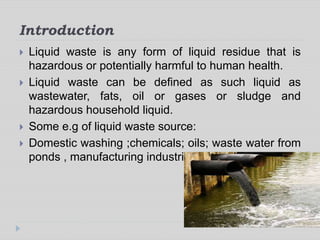Not known Factual Statements About Reclaim Waste
Table of ContentsExcitement About Reclaim WasteReclaim Waste - The FactsThe Best Strategy To Use For Reclaim WasteReclaim Waste Fundamentals ExplainedWhat Does Reclaim Waste Mean?
Domestic sewer waste refers to the waste and items from a property septic storage tank. The correct monitoring and disposal of residential sewage waste call for fluid waste to be moved to a sewage therapy plant where the appropriate methods and devices are used to detoxify and dispose of waste.
Business waste commonly includes prospective threats, such as combustible materials or a blend of liquid and solid waste items, and calls for a much more innovative and detailed disposal procedure. The disposal of commercial waste generally entails the filtration of waste before transportation to make certain safe and appropriate disposal. Industrial waste is produced from results and drainage of industrial procedures and manufacturing.
This kind of waste can not use the very same sewer administration transport or procedures as septic or commercial liquids. The hazardous waste monitoring procedure calls for the evaluation and screening of fluid waste before it goes through the disposal process (liquid waste disposal). Runoff waste is the liquid waste that comes from overflow and excess stormwater in extremely inhabited locations or cities
Runoff waste can trigger contamination and flooding if not taken care of effectively. Making certain proper waste monitoring can protect against calamities and reduce ecological harm.
Reclaim Waste Fundamentals Explained
Contact PROS Services today to discover our waste monitoring and disposal solutions and the correct methods to care for the liquid waste you generate.
(http://www.askmap.net/location/7161699/australia/reclaim-waste)Do you understand what happens to your water when you pull the plug, purge the bathroom or drain pipes the cleaning device? No? Well, it deserves knowing. This supposed 'wastewater' is not just a crucial source however, after treatment, will certainly be released to our land, waterways or the sea. Utilized water from toilets, showers, baths, kitchen area sinks, laundries and commercial procedures is understood as wastewater.

water used to cool machinery or clean plant and equipment). Stormwater, a type of wastewater, is drainage that streams from agricultural and city locations such as roofings, parks, gardens, roads, courses and gutters right into stormwater drains pipes, after rain. Stormwater streams without treatment straight to local creeks or rivers, ultimately getting to the ocean.
The Ultimate Guide To Reclaim Waste
In Queensland, many wastewater is dealt with at sewer treatment plants. Wastewater is delivered from domestic or industrial sites with a system of drains and pump terminals, called sewage reticulation, to a sewage treatment plant. Regional governments construct, maintain and run most sewer treatment plants. Operators are licensed under the Environmental Management Act 1994 to release treated wastewater at an appropriate environmental standard into waterways.
The Division of Natural Resources advises neighborhood governments about handling, operating and maintaining sewage systems and treatment plants. In unsewered areas, city governments might call for homeowners to set up private or home sewer treatment systems to deal with domestic wastewater from bathrooms, cooking areas, restrooms and laundries. The Department of Natural Resources authorizes using house systems when they are confirmed to be efficient.
A lot of stormwater receives no therapy. In some new subdivisions, treatment of some stormwater to remove clutter, sand and gravel has actually begun making use of gross contaminant catches. Wastewater treatment happens in four stages: Eliminates strong matter. Larger solids, such as plastics and other things incorrectly released to drains, are removed when wastewater is passed through screens.
Utilizes little living microorganisms knows as micro-organisms to damage down and get rid of staying liquified wastes and fine particles. Micro-organisms and wastes are included in the sludge.
Some Known Questions About Reclaim Waste.
Nutrient removal is not offered at all sewage treatment plants because it needs expensive specialised equipment. Clear liquid effluent created after treatment might still consist of disease-causing micro-organisms - liquid waste removal melbourne.

A lot of wastewater moves into the sewage system. Under the Act, local governments administer authorizations and licences for eco relevant tasks (Ages) including wastewater launches that may have a local impact.
Reclaim Waste - Questions
Or else, examples are considered laboratory analysis. Frequently several tests are needed to develop the levels of each of the various contaminants such as oils, heavy steels and pesticides in water. Monitoring gives factual information about water high quality and can validate that permit problems are being fulfilled. The info acquired via tracking supplies the basis for making water quality choices.